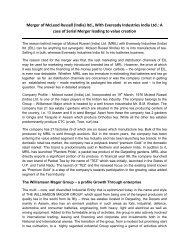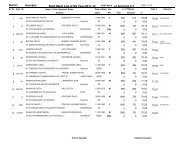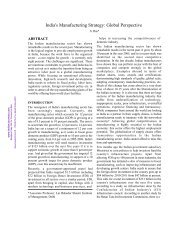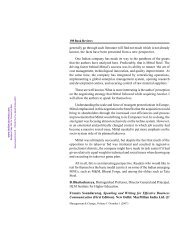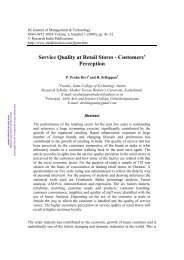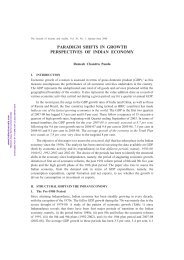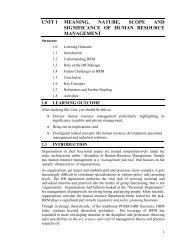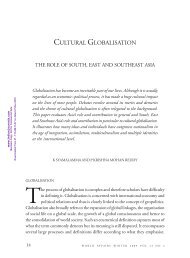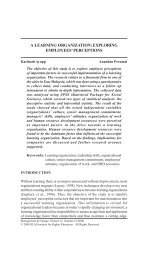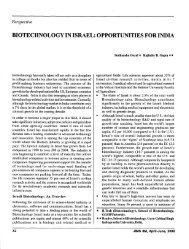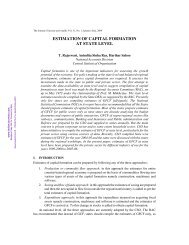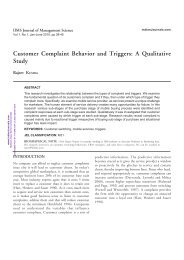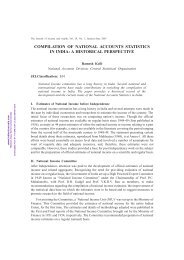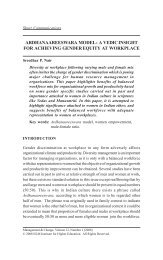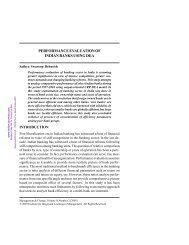Zhou Enlai - A Political Life.pdf - Mimts.org
Zhou Enlai - A Political Life.pdf - Mimts.org
Zhou Enlai - A Political Life.pdf - Mimts.org
You also want an ePaper? Increase the reach of your titles
YUMPU automatically turns print PDFs into web optimized ePapers that Google loves.
www.IndianJournals.com<br />
Members Copy, Not for Commercial Sale<br />
Downloaded From IP - 115.248.73.67 on dated 11-Dec-2010<br />
<strong>Zhou</strong> only had a political life, if one<br />
considers war making and espionage as<br />
politics by other means. From his return<br />
to China in 1924 until his death, <strong>Zhou</strong><br />
was in an endless series of adventures—<br />
military, diplomatic, administrative and<br />
internal party politics. He had no<br />
children and although his wife stayed<br />
with him to the end, there must have<br />
been little time for family life. <strong>Zhou</strong> had<br />
many co-workers, but, it would seem<br />
no friends. Those he had, he sacrificed<br />
when the political winds changed. His<br />
charming personality, intelligence and<br />
eloquence allowed him to be in contact<br />
with many different people and it was<br />
as a diplomat dealing with the Russians,<br />
Americans, French, Central Europeans,<br />
Indians, Koreans and Vietnamese that he<br />
made his mark.<br />
It was probably in 1943 that <strong>Zhou</strong><br />
and Mao’s souls merged and animated<br />
two bodies. It was in that year that the<br />
doctrine “Mao Zedong Thought (which)<br />
is Marxism–Leninism, Chinese<br />
Bolshevism and Chinese Communism”<br />
all at once was enshrined as the sacred<br />
creed and guiding principle for the entire<br />
party. From 1943 onwards, many crucial<br />
events took place—the war against the<br />
Japanese, the Chinese Civil War and the<br />
establishment of the Peoples’ Republic,<br />
REVIEWS<br />
the war in Korea, the break with post-<br />
Stalin Russia, the rise of the Non-Aligned<br />
Movement, the war in Vietnam, the reestablishment<br />
of relations with the USA<br />
and the Cultural Revolution—in which<br />
<strong>Zhou</strong> <strong>Enlai</strong> played an important role. Yet<br />
whoever <strong>Zhou</strong> <strong>Enlai</strong> was before 1943,<br />
afterwards his personality and individual<br />
goals were largely absent. He became the<br />
administrator of the Mao Zedong<br />
Thought. <strong>Zhou</strong> often had doubts about<br />
Mao’s aims and methods, most strongly<br />
during the Cultural Revolution. Yet,<br />
every time, when speaking out might<br />
have made a difference in favour of a<br />
more rational policy, <strong>Zhou</strong> <strong>Enlai</strong> was<br />
silent. He was willing to write elegant<br />
self-criticisms of himself and turn away<br />
from colleagues or staff who were in<br />
political trouble. As the authors evaluate,<br />
“<strong>Political</strong> survival clearly required <strong>Zhou</strong><br />
to faithfully execute Mao’s arbitrary<br />
instructions. For this he had not much<br />
choice, any defiance by him would have<br />
unavoidably resulted in his downfall,<br />
since an array of radicals was closely<br />
watching him and waiting for him to<br />
take a false step to oust him from<br />
power”. On his tomb, in those postersize<br />
characters of the Cultural<br />
Revolution, there should be only one<br />
word, “survivor”.<br />
VOL 12 NO 4 WINTER 2008 WORLD AFFAIRS 133



